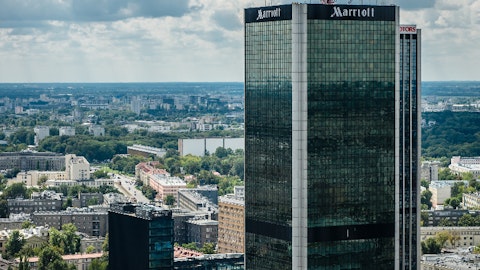In this article, we are going to talk about the Top 15 Financial Centers/Cities of The World. You can skip our detailed explanation of the criteria we used to rank the cities in our list and go directly to the Top 5 Financial Centers/Cities of The World.
The geographic placement of a business plays a key role in its growth. If a business it located where intellectual property is protected, laws are enforced and markets are free, it will have much better opportunities to thrive as compared to be at someplace where uncertainty and costs are rising and business friendliness is low. A Duff & Phelps survey interviewed hundreds of business executives to evaluate the regulatory outlook for the top financial centers and cities of the world. About two-thirds of the respondents which were located mostly in the major financial hubs of the world said that their current regime is effective in preventing financial crime.
Is Location Important For Businesses?
The importance of financial center and business-friendly cities could be judged from a detailed study conducted by Harvard Business Review. The study tracked hundreds of corporate headquarters for about 60 years, and concluded that geography is a key factor for major companies. About 70% of Fortune 500 companies’ HQs are in metros that rank in the top 25% chunk for talent. Similarly, the study also found that larger metropolitan areas have greater talent pools, mostly because talented people still prefer to move to big cities and centers for opportunities. Major cities and financial hubs offer facilities like airports, malls, high-speed internet and other amenities which attract talented people. The HBR study found that about 90% of corporate headquarters are located in metros which have international airports.
Similarly, a report by McKinsey titled “The Future of Work in America: People and Places, Today and Tomorrow” found that about 25% of megacities and financial hubs in the U.S. account for about 30% of the country’s population. These cities rank higher in terms of income, employment opportunities, technology and media.

Pixabay/Public Domain
The Exodus
However, the coronavirus crisis upended the work and employment trends all over the world. Top financial centers/cities of the world are already facing the reverberations of the remote work trend as younger people are starting to leave major cities for low-cost small cities. According to a 2020 Pew report, around 22% of the surveyed adults either changed their residence due to the pandemic or know someone who did. In October, freelancing platform Upwork said in its report that about 14-23 million of U.S. households plan to move out of major cities and into less expensive housing markets. This trend is fueled by remote work opportunities.
Financial Centers/Cities Will Continue to Thrive
Despite the work-from-home trend, freelancers and independent contractors would still prefer to be in a vicinity where they have business opportunities, high-speed internet, decent healthcare and entertainment opportunities.
A financial center refers to a strategically important place that has a massive concentration of financial institutions, public and private banks, hedge funds, trading and commerce organizations headquarters. They also have an efficient internet and transportation infrastructure, un-interrupted means of communication, and a transparent regulatory authority backed by a stable political regime.
Our Methodology
Currently, there are thousands of financial centers throughout the world. Many analytics agencies and financial institutions such as IMF, the World Bank, United Nation and Economist Intelligence Unit rank the financial competitiveness of these centers on a regular basis by comparing several factors. There are several ways to classify the top financial cities/centers. However, our methodology would be based on the most common denominators that are well understood by a broad section of the society whether they are affiliated with the financial sector or not.

stellamc/Shutterstock.com
Market Capitalization
To put it simply, market capitalization refers to the total value in terms of monetary figures of a publicly-traded company. In the context of the biggest financial center/hub, the total capitalization of a stock exchange in a financial center would determine its significance and placement in our ranking. Companies like Apple (NASDAQ: AAPL), Amazon (NASDAQ: AMZN), Google (NASDAQ: GOOGL), and Facebook (NASDAQ: FB) have the highest market cap right now.
GFCI
Global financial centers index (GFCI) is a popular ranking system that is jointly published by British and Chinese think tanks since 2007. It is a famous ranking system for top financial centers as it indexes locations based on data from over 29,000 financial centers’ assessments and contains hundreds of indices used by organizations such as the Organization of Economic Coordination and Development (OECD), World Bank, and Economist Intelligence Unit. It also takes into account the business environment, human resources, infrastructure, and transportation as well as the financial center’s growth and reputation.

With all of that in mind, let’s start our ranking of the top 15 financial centers/cities of the world.
15) Boston
GFCI rating: 716
Boston is the home to famous universities and research institutions, Boston has become an epicenter for the American technological revolution in fields ranging from law, medicine, engineering, and business due to institutions such as Harvard, MIT and Boston University. Boston also had a very important role in the American revolution. Its GDP contributes more than $420 billion to the US economy. Boston is also a hub of national and international financial services. Boston is a global leader in innovation and entrepreneurship which can be attributed to the fact that many venture capitals have offices in the city. One of the top companies that operate from Boston is General Electric (NYSE: GE).
14) Geneva
GFCI rating: 717
Geneva is the second Swiss city that made it to this list of top 15 financial centers/cities of the world. It is an important city hosting many financial and multi-lateral institutions. Geneva has the honor of hosting the highest number of international organizations in the world. Geneva’s economy is services-oriented with financial institutions and banks dominating the market. Assets worth more than $1 trillion are managed by these banks. Geneva contributes $47 billion to the economy of Switzerland.
13) Edinburgh
GFCI rating:718
Edinburgh is the capital of Scotland and remains one of the top 15 financial centers/cities of the world. The economy of Edinburgh contributes 33% ($238 billion) to the total economy of Scotland. It is a major hub of financial and banking institutes. The city scores are high on the employment rate index.
12) Luxembourg City
GFCI rating: 719
Luxembourg is a tiny landlocked country located in central Europe bordering Germany, France, and Belgium. Its namesake capital is one of the key centers of the world both in terms of financial and political importance. It is one of the wealthiest cities in Europe. Luxembourg is ranked as the 2nd safest tax haven in the world.
11) Los Angeles
GFCI rating: 720
Home of Hollywood and America’s entertainment industry, Los Angeles is one of the most ethnically diverse metropolitan areas in the world. Its economy alone amounts to a whopping $700 billion, equivalent to the economy of Switzerland. LA’s robust economy is driven by several industries which include international trade, entertainment, aerospace technology and tourism. Some of the biggest companies based in LA are Activision Blizzard (NASDAQ: ATVI) and Warner Bros.
10) Zurich
GFCI rating: 724
Swiss stock exchange market cap: US$1.79 trillion
Zurich ranks 10th on out list of top 15 financial centers/cities of the world. Zurich is one of the most advanced cities in the world with a strong focus on education, political stability, and tier-one infrastructure. Swiss stock exchange, which is based in Zurich, is one of the largest in the world based on market capitalization. Zurich is also the largest gold-trading center in the world.
9) Shenzhen
GFCI rating: 732
Shenzhen stock exchange market cap: US$3.36 trillion
No wonder why a third Chinese city is included in this list. The Guardian dubbed Shenzhen as the Silicon Valley of China owing to the rapid technological research and development. Its progress and prosperity are due to foreign direct investment (FDI) following more liberal economic policies. It hosts the seventh-highest number of billionaires according to Forbes as well as many Chinese tech giants such as Huawei, Tencent, ZTE, and many financial institutions such as China Merchant bank. Shenzhen stock exchange is the seventh-largest in the world in terms of market capitalization.
8) San Francisco
GFCI rating: 738
Ranked at number 8 in GFCI rating, San Francisco is one of the most multicultural cities in the world and the financial epicenter of the US state of California. It also ranks 8th on our list of top 15 financial centers/cities of the world. The city has a GDP of $550 billion according to Statista, more than the entire GDP of Singapore. San Francisco is home to major IT companies that shape our societies today such as Airbnb (NASDAQ: ABNB), Uber (NYSE: UBER), Twitter (NYSE: TWTR) and Salesforce.com (NYSE: CRM). There are many investment and venture capital firms that are associated with several startups in San Francisco.
7) Beijing
GFCI rating: 741
Beijing is home to several billionaires, major companies and finance hubs. The capital of China reflects China’s economic, diplomatic, and scientific developments. Beijing’s Financial Street is lined with headquarters of the People’s Bank of China, large state-run banks, and insurance companies.
6) Singapore
GFCI rating: 742
Singapore stock exchange market cap: US$733.27 billion
Singapore has emerged as a strong economic and financial center thanks to the visionary leadership of its founding prime minister, Lee Kuan Yew, also known as LKY. Singapore is a multi-cultural and technologically advanced country. Its internet and transportation infrastructure often rank as some of the best in the world. There are over 60 semi-conductor companies in Singapore, accounting for about 11% of the global market share. Singapore ranks 7th in the GFCI rating whereas its stock exchange is one of the best- performers in the world with 776 listings.
Click to continue reading and see Top 5 Financial Centers/Cities of The World
Suggested Articles:
- 15 Fastest-Growing Fintech Companies
- Warren Buffett’s Top 10 Stock Picks
- 15 Youngest Tech Billionaires
Disclosure: None. Top 15 Financial Centers/Cities of The World is originally published on Insider Monkey.





